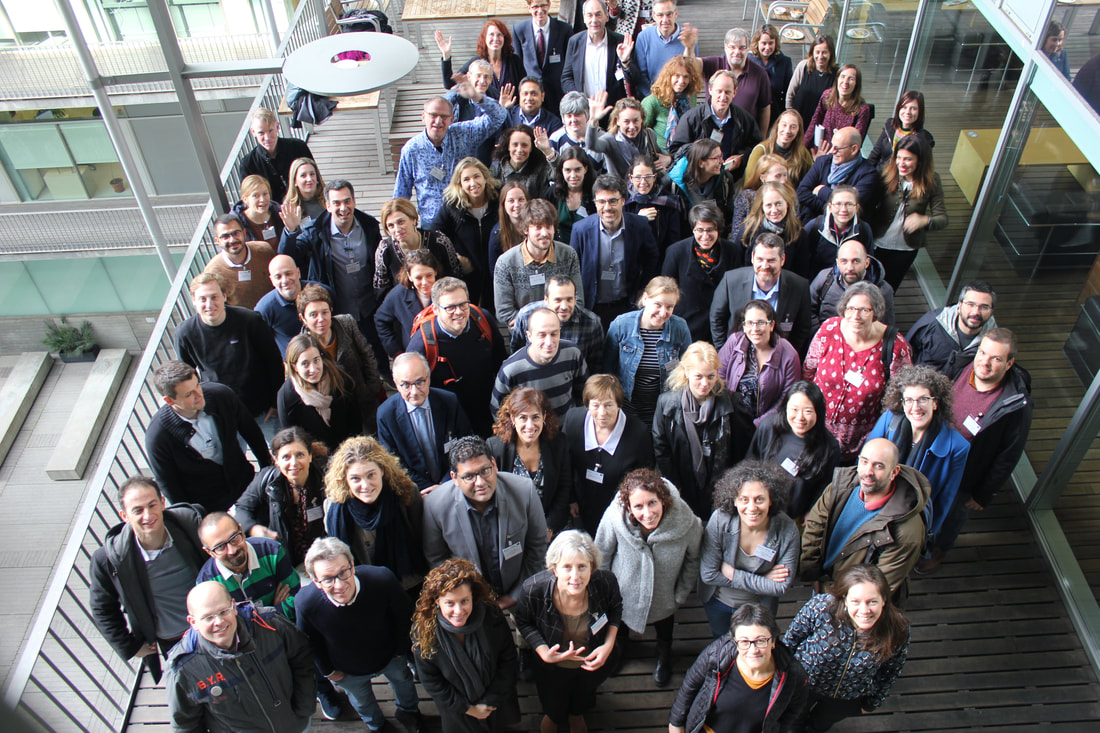|
Staff and students from the AROM team visited Nottingham Free School this week to deliver outreach sessions to four groups of year 10 pupils. Dr Jonathan Thomas showed pupils the Nanopore MinION – a USB-stick-sized DNA sequencer – and explained how next-generation sequencing technologies and epidemiology are being used to understand and control infectious diseases, including those caused by antibiotic-resistant bacteria and the current novel coronavirus outbreak. Dr Jody Winter made a case for the roles of microbes in “saving the world”, including their potential applications in environmentally friendly food and biofuel production, and degradation of plastics. And our MBiol students Frazer McCuaig and Simon Barratt were on hand to answer pupils’ questions about university life – thank you for volunteering!
0 Comments
The EU-funded exposome research project ATHLETE – Advancing Tools for Human Early Lifecourse Exposome Research and Translation – launched this week with a kick-off meeting in Barcelona. ATHLETE is a consortium of 22 partners from 11 European countries and the United States.
The project aims to study the effects of many environmental hazards on human health from preconception to adolescence. The final goal of the project is to develop a toolbox that can be used to evaluate the effects of a large group of environmental exposures in individuals as well as in communities in order to design policies and interventions to prevent exposures and to reduce health impacts. The exposome concept implies a shift of perspective in the research of how environmental hazards affect human health. Instead of looking at the consequences that each exposure could have on a living system, the exposome takes into account all the exposures an individual is subjected to from conception to death. The exposome takes into account all those elements we are exposed to via our diet, lifestyle and the environment we live and work in, as well as internal biological factors such as metabolism, gut microbiota, inflammation and oxidative stress. Dr Lesley Hoyles of the AROM research group will lead the microbiome part of this ambitious project, processing samples and analysing shotgun metagenomic data derived from over 1000 children enrolled in the study. (This project has received funding from the European Union’s Horizon 2020 research and innovation programme under grant agreement No 874583. This post reflects only the author's view and the European Commission cannot be held responsible for any use that may be made of the information it contains.) Seven of our staff and students have had abstracts accepted for presentation (6 posters and 1 talk) at the Microbiology Society Annual Conference 2020, which will be held in Edinburgh in April. We're especially delighted that some of our PhD students will be presenting at a major conference for the first time. Congratulations to all!
Special congratulations to undergraduate student Frazer McCuaig (MBiol Microbiology) who started a 10-month NTU-funded research placement with us in September 2019. His successes in the lab during the first few months of his placement meant he was able to submit a first-author abstract to this conference before Christmas. Two of our former masters students, Warren Herridge (MSc) and Jessica O'Shea (MBiol), have had their review on Klebsiella phages accepted for publication in the Journal of Medical Microbiology. Well done – a great start to the new year! We look forward to seeing the final version of the review published in the next few weeks.
In the meantime, the preprint, non-peer-reviewed version of Warren and Jessica's review is available to read at PeerJ Preprints. |




 RSS Feed
RSS Feed
